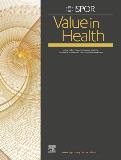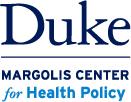
Real-world evidence on treatment outcomes can be an important aspect of the evidence basis for decision making if it is seen as credible. For real-world studies that are meant to test hypotheses about comparative-effectiveness or safety, a key aspect of credibility is that they are conducted transparently with tests that follow a prespecified analytic protocol. Preregistration of such study protocols on a public website would help build trust that their results can be used for decision-making purposes.
Establishing a Culture of Transparency for Real-World Evidence Studies...
The Real-World Evidence Transparency Initiative Partnership is a joint collaboration and ongoing effort between ISPOR, the International Society for Pharmacoepidemiology, the Duke-Margolis Center for Health Policy, and the National Pharmaceutical Council. The objective of this initiative is to establish a culture of transparency for study analysis and reporting of hypothesis evaluating real-world evidence studies on treatment effects.
Improving Transparency to Build Trust...
 The Real-World Evidence Transparency Initiative published a plan to encourage routine registration of noninterventional real-world evidence studies used to evaluate treatment effects. The report, “Improving Transparency to Build Trust in Real-World Secondary Data Studies for Hypothesis Testing—Why, What, and How: Recommendations and a Road Map from the Real-World Evidence Transparency Initiative,”
was published in the September 2020 issue of Value in Health.
The Real-World Evidence Transparency Initiative published a plan to encourage routine registration of noninterventional real-world evidence studies used to evaluate treatment effects. The report, “Improving Transparency to Build Trust in Real-World Secondary Data Studies for Hypothesis Testing—Why, What, and How: Recommendations and a Road Map from the Real-World Evidence Transparency Initiative,”
was published in the September 2020 issue of Value in Health.
More...
The report, “Improving Transparency to Build Trust in Real-World Secondary Data Studies for Hypothesis Testing—Why, What, and How: Recommendations and a Road Map from the Real-World Evidence Transparency Initiative,” was published in the September 2020 issue of Value in Health. The plan includes specifying the rationale for registering hypothesis-evaluating treatment effectiveness real-world evidence studies, the studies that should be registered, where and when these studies should be registered, how and when analytic deviations from protocols should be reported, how and when to publish results, and incentives to encourage registration.
Real-World Evidence Registry
The Real-World Evidence Registry provides researchers with a fit-for-purpose platform to register their study designs before they begin work to facilitate the transparency needed to elevate the trust in the study results.
More...
Real-world evidence studies can be used for hypothesis evaluation of treatment effects including safety (HETE studies). However these studies can also be perceived as less rigorous than clinical trials especially when not preregistered in a public setting such as ClinicalTrials.gov or the EU-PAS register.
ISPOR and its partners ISPE, NPC, and Duke Margolis have developed a simplified registration site especially for RWE HETE studies using secondary data. This searchable site provides a place for preregistration of studies that may not require registration for regulatory purposes but benefit from the rigor of transparent study methods and also provide a reference (such as a URL or doi) to share with peer reviewers, assessors, or other decision making bodies. Researchers can get started ‘here’ by creating a profile on the Open Sciences Framework and registering their study on the RWE Registry.
Shaking the Myth of Real-World Evidence
On-Demand Webinar
Learn more by watching the on-demand webinar, “Shaking the Myth of Real-World Evidence: Updates from the RWE Transparency Initiative.” This session provides updates from the initiative including a walk-through of the study registration site and updates on the special task force developing a standardized RWE protocol template.
Additional Resources
- Real-World Evidence Registry
 Good Practices Reports and Other ISPOR Reports from Value in Health
Good Practices Reports and Other ISPOR Reports from Value in Health
- HARmonized Protocol Template to Enhance Reproducibility of Hypothesis Evaluating Real-World Evidence Studies on Treatment Effects: A Good Practices Report of a Joint ISPE/ISPOR Task Force
- "Improving Transparency to Build Trust in Real-World Secondary Data Studies for Hypothesis Testing—Why, What, and How: Recommendations and a Road Map from the Real-World Evidence Transparency Initiative"
- "Good Practices for Real-World Data Studies of Treatment and/or Comparative Effectiveness"
- "Reporting to Improve Reproducibility and Facilitate Validity Assessment for Healthcare Database Studies V1.0"
- "Unlocking the Promise of Real-World Evidence" (Value & Outcomes Spotlight, Vol. 6, No. 5)
- ISPOR's Real-World Evidence Strategic Initiatives
Conferences & Summits

March 26, 2025
<h4><strong style="background-color:transparent;color:inherit;font-size:inherit;text-align:inherit;text-transform:inherit;word-spacing:normal;caret-color:auto;white-space:inherit;">Master hands-on techniques for adapting global economic models to local healthcare systems</strong></h4><div><div><p>Local economic models, adapted from a global model, are routinely used in many countries as a tool for payers around the world to optimize healthcare investment and reimbursement decisions. Following best practices for country adaptations is crucial to ensure the contextual relevance of the local environment and generalizability of the global model are reflected in each adapted model.</p><p>Technical topics include:</p><ul><li>Principles and techniques for adapting health economic models to different regions.</li><li>Best practices for country-specific adaptations at various stages of a health technology’s life cycle.</li><li>Key factors influencing economic evaluations and value drivers across different geographies.</li><li>Checklist for customizing model design to local environments.</li><li>Methods for identifying and selecting data for local healthcare settings.</li><li>Adjusting parameters to reflect treatment landscapes and patient characteristics.</li></ul><p>This course includes hands-on exercises and tools that can be immediately applied, including:</p><ul><li>Case studies and real-world examples to demonstrate model adaptation techniques.</li><li>Practical exercises applying concepts to adapt a hypothetical economic model to a specific country.</li><li>Interactive sessions where participants work through model customizations step-by-step, using provided data and scenarios.</li></ul></div><p><a class="button primary" href="https://portal.ispor.org/eweb/DynamicPage.aspx?webcode=EventInfo&Reg_evt_key=19e80ca4-7475-4cac-8a26-ed0a56e72fff&RegPath=EventRegFees&FreeEvent=0&Event=Q1%202025%20Virtual%20ISPOR%20Short%20Course:%20Introduction%20to%20Best%20Practices%20for%20Country%20Adaptations%20of%20Economic%20Models&FundraisingEvent=0&evt_guest_limit=0" data-sf-ec-immutable="">Register Here</a></p><div><p><em>Participants are invited to bring a laptop computer with Microsoft Excel installed for use during the practical exercise.</em></p></div><div><strong>PREREQUISITE:</strong> Familiarity with principles of economic evaluation of healthcare technologies will be important.</div><p><strong style="background-color:transparent;color:inherit;font-size:inherit;text-align:inherit;text-transform:inherit;word-spacing:normal;caret-color:auto;white-space:inherit;"><strong>LEVEL:</strong> </strong><span style="background-color:transparent;color:inherit;font-family:inherit;font-size:inherit;text-align:inherit;text-transform:inherit;word-spacing:normal;caret-color:auto;white-space:inherit;"> </span><span style="background-color:transparent;color:inherit;font-family:inherit;font-size:inherit;text-align:inherit;text-transform:inherit;word-spacing:normal;caret-color:auto;white-space:inherit;"> Intermediate</span></p><p><span style="background-color:transparent;color:inherit;font-family:inherit;font-size:inherit;text-align:inherit;text-transform:inherit;word-spacing:normal;caret-color:auto;white-space:inherit;"></span><strong style="background-color:transparent;color:inherit;font-size:inherit;text-align:inherit;text-transform:inherit;word-spacing:normal;caret-color:auto;white-space:inherit;"><strong>TRACK: </strong></strong><span style="background-color:transparent;color:inherit;font-family:inherit;font-size:inherit;text-align:inherit;text-transform:inherit;word-spacing:normal;caret-color:auto;white-space:inherit;">Economic Evaluation</span></p><p><span style="background-color:transparent;color:inherit;font-family:inherit;font-size:inherit;text-align:inherit;text-transform:inherit;word-spacing:normal;caret-color:auto;white-space:inherit;"></span><strong style="background-color:transparent;color:inherit;font-size:inherit;text-align:inherit;text-transform:inherit;word-spacing:normal;caret-color:auto;white-space:inherit;">Faculty</strong><span style="background-color:transparent;color:inherit;font-family:inherit;font-size:inherit;text-align:inherit;text-transform:inherit;word-spacing:normal;caret-color:auto;white-space:inherit;"><br /></span></p></div><div><div><strong>Kyle Paret, PhD</strong></div><div>Associate Director, Health Economics</div><div>RTI Health Solutions</div><div>Research Triangle Park, NC, USA</div><div><br /></div><div><strong>Nathorn Chaiyakunapruk, PharmD, PhD</strong></div><div>Professor</div><div>University of Utah, College of Pharmacy</div><div>Salt Lake City, UT, USA</div><div><br /></div><div><strong>Naoko Ronquest, PhD</strong></div><div>Executive Director, Health Economics</div><div>RTI Health Solutions</div><div>Research Triangle Park, NC, USA</div><div><br /></div><div><strong>Isobel Pearson, DPhil</strong></div><div>Senior Director, Health Economics, Health Technology Assessment</div><div>RTI Health Solutions</div><div>Research Triangle Park, NC, USA</div><div></div><div></div><div></div><div><!--/div--> <div><div><p><strong style="background-color:transparent;color:inherit;font-size:inherit;text-align:inherit;text-transform:inherit;word-spacing:normal;caret-color:auto;white-space:inherit;">Schedule:</strong><br /></p></div></div><div><p><strong>LENGTH:</strong> 4 Hours | Course runs 2 consecutive days, 2 hours each day</p></div></div><div><strong>Wednesday, 26 March 2025 | Course runs 2 consecutive days, 2 hours per day</strong><strong></strong></div><div><div>10:00AM–12:00PM Eastern Daylight Time (EDT)</div><div>8:00AM-10:00AM Mountain Daylight Time (MDT)</div><div>15:00PM-17:00PM Central European Summer Time (CEST)</div><div>14:00PM–16:00PM Coordinated Universal Time (UTC)</div></div><div></div><div><br /></div><div><div><strong>Thursday, 27 March 2025 | Course runs 2 consecutive days, 2 hours per day</strong></div><div>10:00AM–12:00PM Eastern Daylight Time (EDT)</div><div>8:00AM-10:00AM Mountain Daylight Time (MDT)</div><div>15:00PM-17:00PM Central European Summer Time (CEST)</div><div>14:00PM–16:00PM Coordinated Universal Time (UTC)</div><div></div></div><div><p><a href="https://www.timeanddate.com/worldclock/fixedtime.html?msg=March+26-27%2C+2025%3A+Virtual+ISPOR+Short+Course+%E2%80%9CIntro+Best+Practices+Country+Adaptations+...%22&iso=20250326T10&p1=12&ah=2" target="_blank" data-sf-ec-immutable="" data-sf-marked="" style="font-family:inherit;font-size:inherit;text-align:inherit;text-transform:inherit;word-spacing:normal;white-space:inherit;">Click for time zone conversion</a></p></div><p><a class="button primary" href="https://portal.ispor.org/eweb/DynamicPage.aspx?webcode=EventInfo&Reg_evt_key=19e80ca4-7475-4cac-8a26-ed0a56e72fff&RegPath=EventRegFees&FreeEvent=0&Event=Q1%202025%20Virtual%20ISPOR%20Short%20Course:%20Introduction%20to%20Best%20Practices%20for%20Country%20Adaptations%20of%20Economic%20Models&FundraisingEvent=0&evt_guest_limit=0" data-sf-ec-immutable="">Register Here</a><br /></p><p><a href="/education-training/short-courses">Back to all short courses</a><br /><strong></strong></p><div fontscheme-block="2"><span style="background-color:transparent;color:inherit;font-family:inherit;font-size:inherit;text-align:inherit;text-transform:inherit;word-spacing:normal;caret-color:auto;white-space:inherit;"></span><strong style="background-color:transparent;color:inherit;font-size:inherit;text-align:inherit;text-transform:inherit;word-spacing:normal;caret-color:auto;white-space:inherit;"><em>ISPOR short courses are designed to enhance knowledge and techniques in core health economics and outcomes research (HEOR) topics as well as emerging trends in the field. Short courses offer 4 or 8 hours of premium scientific education and an electronic course book. Active attendee participation combined with our expert faculty creates an immersive and impactful learning experience. Short courses are not recorded and are only available during the live course presentation.</em></strong></div></div>)
Short Courses & Webinars

March 26, 2025
<h4><strong style="background-color:transparent;color:inherit;font-size:inherit;text-align:inherit;text-transform:inherit;word-spacing:normal;caret-color:auto;white-space:inherit;">Master hands-on techniques for adapting global economic models to local healthcare systems</strong></h4><div><div><p>Local economic models, adapted from a global model, are routinely used in many countries as a tool for payers around the world to optimize healthcare investment and reimbursement decisions. Following best practices for country adaptations is crucial to ensure the contextual relevance of the local environment and generalizability of the global model are reflected in each adapted model.</p><p>Technical topics include:</p><ul><li>Principles and techniques for adapting health economic models to different regions.</li><li>Best practices for country-specific adaptations at various stages of a health technology’s life cycle.</li><li>Key factors influencing economic evaluations and value drivers across different geographies.</li><li>Checklist for customizing model design to local environments.</li><li>Methods for identifying and selecting data for local healthcare settings.</li><li>Adjusting parameters to reflect treatment landscapes and patient characteristics.</li></ul><p>This course includes hands-on exercises and tools that can be immediately applied, including:</p><ul><li>Case studies and real-world examples to demonstrate model adaptation techniques.</li><li>Practical exercises applying concepts to adapt a hypothetical economic model to a specific country.</li><li>Interactive sessions where participants work through model customizations step-by-step, using provided data and scenarios.</li></ul></div><p><a class="button primary" href="https://portal.ispor.org/eweb/DynamicPage.aspx?webcode=EventInfo&Reg_evt_key=19e80ca4-7475-4cac-8a26-ed0a56e72fff&RegPath=EventRegFees&FreeEvent=0&Event=Q1%202025%20Virtual%20ISPOR%20Short%20Course:%20Introduction%20to%20Best%20Practices%20for%20Country%20Adaptations%20of%20Economic%20Models&FundraisingEvent=0&evt_guest_limit=0" data-sf-ec-immutable="">Register Here</a></p><div><p><em>Participants are invited to bring a laptop computer with Microsoft Excel installed for use during the practical exercise.</em></p></div><div><strong>PREREQUISITE:</strong> Familiarity with principles of economic evaluation of healthcare technologies will be important.</div><p><strong style="background-color:transparent;color:inherit;font-size:inherit;text-align:inherit;text-transform:inherit;word-spacing:normal;caret-color:auto;white-space:inherit;"><strong>LEVEL:</strong> </strong><span style="background-color:transparent;color:inherit;font-family:inherit;font-size:inherit;text-align:inherit;text-transform:inherit;word-spacing:normal;caret-color:auto;white-space:inherit;"> </span><span style="background-color:transparent;color:inherit;font-family:inherit;font-size:inherit;text-align:inherit;text-transform:inherit;word-spacing:normal;caret-color:auto;white-space:inherit;"> Intermediate</span></p><p><span style="background-color:transparent;color:inherit;font-family:inherit;font-size:inherit;text-align:inherit;text-transform:inherit;word-spacing:normal;caret-color:auto;white-space:inherit;"></span><strong style="background-color:transparent;color:inherit;font-size:inherit;text-align:inherit;text-transform:inherit;word-spacing:normal;caret-color:auto;white-space:inherit;"><strong>TRACK: </strong></strong><span style="background-color:transparent;color:inherit;font-family:inherit;font-size:inherit;text-align:inherit;text-transform:inherit;word-spacing:normal;caret-color:auto;white-space:inherit;">Economic Evaluation</span></p><p><span style="background-color:transparent;color:inherit;font-family:inherit;font-size:inherit;text-align:inherit;text-transform:inherit;word-spacing:normal;caret-color:auto;white-space:inherit;"></span><strong style="background-color:transparent;color:inherit;font-size:inherit;text-align:inherit;text-transform:inherit;word-spacing:normal;caret-color:auto;white-space:inherit;">Faculty</strong><span style="background-color:transparent;color:inherit;font-family:inherit;font-size:inherit;text-align:inherit;text-transform:inherit;word-spacing:normal;caret-color:auto;white-space:inherit;"><br /></span></p></div><div><div><strong>Kyle Paret, PhD</strong></div><div>Associate Director, Health Economics</div><div>RTI Health Solutions</div><div>Research Triangle Park, NC, USA</div><div><br /></div><div><strong>Nathorn Chaiyakunapruk, PharmD, PhD</strong></div><div>Professor</div><div>University of Utah, College of Pharmacy</div><div>Salt Lake City, UT, USA</div><div><br /></div><div><strong>Naoko Ronquest, PhD</strong></div><div>Executive Director, Health Economics</div><div>RTI Health Solutions</div><div>Research Triangle Park, NC, USA</div><div><br /></div><div><strong>Isobel Pearson, DPhil</strong></div><div>Senior Director, Health Economics, Health Technology Assessment</div><div>RTI Health Solutions</div><div>Research Triangle Park, NC, USA</div><div></div><div></div><div></div><div><!--/div--> <div><div><p><strong style="background-color:transparent;color:inherit;font-size:inherit;text-align:inherit;text-transform:inherit;word-spacing:normal;caret-color:auto;white-space:inherit;">Schedule:</strong><br /></p></div></div><div><p><strong>LENGTH:</strong> 4 Hours | Course runs 2 consecutive days, 2 hours each day</p></div></div><div><strong>Wednesday, 26 March 2025 | Course runs 2 consecutive days, 2 hours per day</strong><strong></strong></div><div><div>10:00AM–12:00PM Eastern Daylight Time (EDT)</div><div>8:00AM-10:00AM Mountain Daylight Time (MDT)</div><div>15:00PM-17:00PM Central European Summer Time (CEST)</div><div>14:00PM–16:00PM Coordinated Universal Time (UTC)</div></div><div></div><div><br /></div><div><div><strong>Thursday, 27 March 2025 | Course runs 2 consecutive days, 2 hours per day</strong></div><div>10:00AM–12:00PM Eastern Daylight Time (EDT)</div><div>8:00AM-10:00AM Mountain Daylight Time (MDT)</div><div>15:00PM-17:00PM Central European Summer Time (CEST)</div><div>14:00PM–16:00PM Coordinated Universal Time (UTC)</div><div></div></div><div><p><a href="https://www.timeanddate.com/worldclock/fixedtime.html?msg=March+26-27%2C+2025%3A+Virtual+ISPOR+Short+Course+%E2%80%9CIntro+Best+Practices+Country+Adaptations+...%22&iso=20250326T10&p1=12&ah=2" target="_blank" data-sf-ec-immutable="" data-sf-marked="" style="font-family:inherit;font-size:inherit;text-align:inherit;text-transform:inherit;word-spacing:normal;white-space:inherit;">Click for time zone conversion</a></p></div><p><a class="button primary" href="https://portal.ispor.org/eweb/DynamicPage.aspx?webcode=EventInfo&Reg_evt_key=19e80ca4-7475-4cac-8a26-ed0a56e72fff&RegPath=EventRegFees&FreeEvent=0&Event=Q1%202025%20Virtual%20ISPOR%20Short%20Course:%20Introduction%20to%20Best%20Practices%20for%20Country%20Adaptations%20of%20Economic%20Models&FundraisingEvent=0&evt_guest_limit=0" data-sf-ec-immutable="">Register Here</a><br /></p><p><a href="/education-training/short-courses">Back to all short courses</a><br /><strong></strong></p><div fontscheme-block="2"><span style="background-color:transparent;color:inherit;font-family:inherit;font-size:inherit;text-align:inherit;text-transform:inherit;word-spacing:normal;caret-color:auto;white-space:inherit;"></span><strong style="background-color:transparent;color:inherit;font-size:inherit;text-align:inherit;text-transform:inherit;word-spacing:normal;caret-color:auto;white-space:inherit;"><em>ISPOR short courses are designed to enhance knowledge and techniques in core health economics and outcomes research (HEOR) topics as well as emerging trends in the field. Short courses offer 4 or 8 hours of premium scientific education and an electronic course book. Active attendee participation combined with our expert faculty creates an immersive and impactful learning experience. Short courses are not recorded and are only available during the live course presentation.</em></strong></div></div>)



